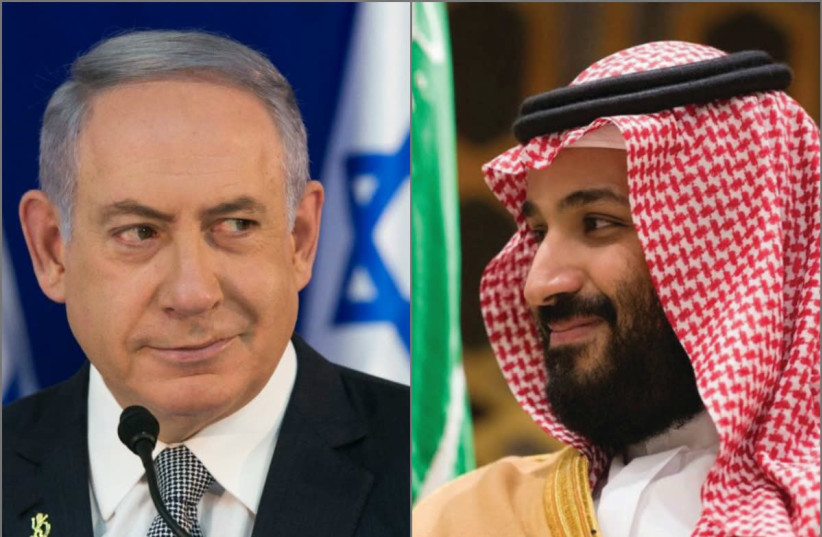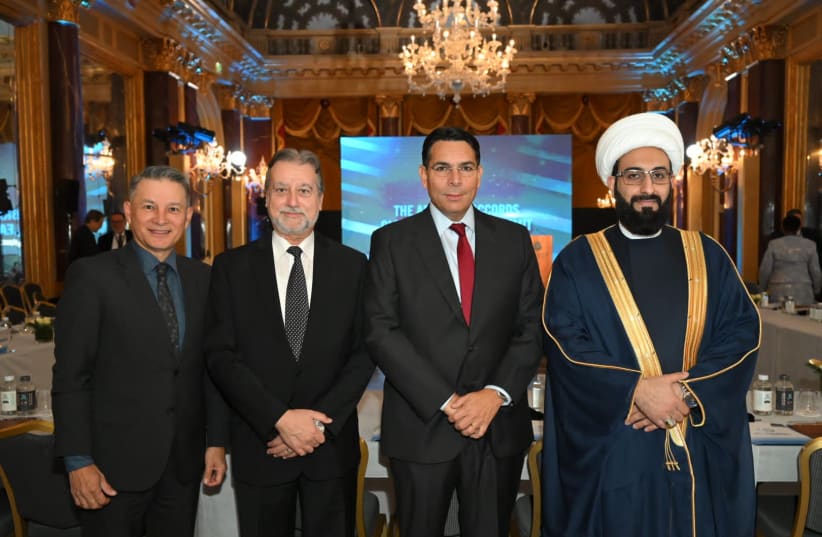Saudi Arabia is likely to join the Abraham Accords and normalize ties with Israel within the next year, former ambassador to the UN Danny Danon said on Thursday.
“I expect we’ll see an agreement between Israel and Saudi Arabia this year,” he told the first Abraham Accords Global Leadership Summit held in Rome with representatives from 30 countries.
Prime minister-designate Benjamin Netanyahu was one of the architects and signatories of the accords.
Under the accords, Israel normalized ties with four Arab countries in 2020. No new countries have signed onto the accords since then.
Danon said that after Netanyahu is sworn into office again, his new government’s “first priority will be to increase signatories to the Abraham Accords."

“Netanyahu’s first state visit will be to Abu Dhabi, and we hope that Riyadh will follow,” said Danon who is a member of Netanyahu’s Likud party.
“The Abraham Accords were not built in a day. The hardest part was going public. We have been in contact with the Saudis for years. I worked personally with them at the United Nations on matters of regional stability and security. It’s just a matter of time before courageous leaders step out of the shadows and full peace is achieved between all the children of Abraham,” Danon said.
At the start of the week, President Isaac Herzog visit two Abraham Accords signatory countries, Bahrain and the United Arab Emirates, to expand those ties and push for additional Arab countries to normalize relations with Israel.
Bahrain’s Foreign Minister Abdullatif bin Rashid Al Zayanit told reporters that progress toward resolving the Israeli-Palestinian conflict was needed before additional Arab countries would normalize ties with Israel.
Speculation over Saudi Arabia joining the Abraham Accords
SPECULATION HAS BEEN high that Saudi Arabia would join the accords, despite skeptics who say the country is not yet ready even if its leadership wants to make the move.
In Rome Imam Mohammad Tawhidi, a Shi’a Muslim Scholar and vice-president of The Global Imams Council said he saw a future in which both Saudi Arabia and Iran had relations with Israel. He recalled that Jerusalem and Tehran enjoyed close relations before the Iranian revolution.
Despite the enmity between those two countries, he said, “peace between Israel, Iran, and even between the Shi’a and the Sunni world is closer than ever.
“The people of Iran have seen the fruits of the Abraham Accords, they have witnessed how fast peace can be built and many remember the days of Israeli tourists visiting Tehran and long for those days to return,” Tawhidi said.
He later told The Jerusalem Post by telephone from Rome that he believed Danon’s assessment was correct about Saudi Arabia, noting that their tacit consent would have been needed for the creation of the Abraham Accords.
“The Saudis are players in the region and the players can never be left out of the game. Other countries would not proceed without a nod from the player,” Tawhidi said adding that its public participation was vital and could not be left out.
Religious leaders, such as those from all three Abrahamic faiths that participated in the forum have an important role to play in shoring up Israel’s ties with the Arab world, Tawhidi said.
Together, he said, these religious leaders can push back an extremist religious narrative that seeks to undermine the accords.
Instead, “we come and we say that God is not against us being friends and collaborating,” Tawhidi explained.
Religious leaders can support the decisions taken by the politicians and “contribute directly to the narrative on the ground,” he said.
Forum participants signed the Abraham Values Pledge in which they agreed to adhere to the following foundational pillars: tolerance, coexistence and diversity, religion and family as well as economic peace.
“We agree to promote these pillars and bring them proactively to our communities in the sphere of academia, governance and community.”
Senior Rabbi Elie Abadie from the United Arab Emirates recalled in Rome how as a small child he fled his home in Beirut.
“I would have never dreamed that one day I would be serving as a rabbi in an Arab country. Never mind an Arab country with a rapidly growing Jewish community that has signed a peace accord with the State of Israel. We are living in profound times and must seize the opportunities that lay before us.”
Among the participants were former Bahraini Ambassador to the UN Houda Nonoo, the former prime minister of Slovenia, Lord Stuart Polak of Britain, former Finnish foreign minister Timo Soini, the European Union’s commission coordinator on combating antisemitism Katharina Von Schnurbein and Reverend Philip Larrey who is the dean of the Philosophy Department of the Pontifical Lateran University at the Vatican.
